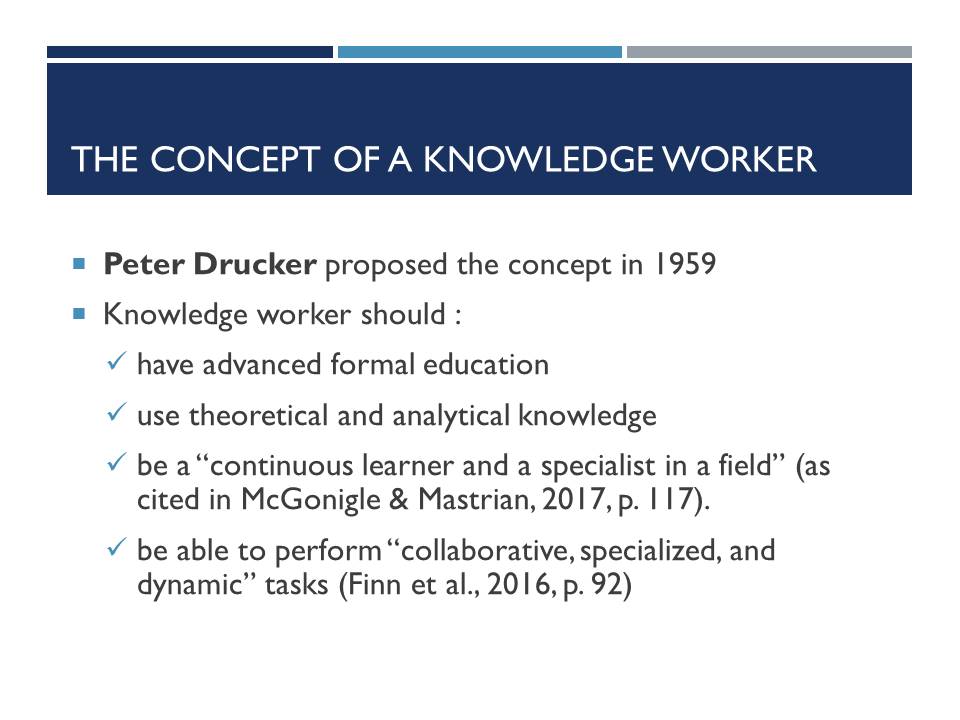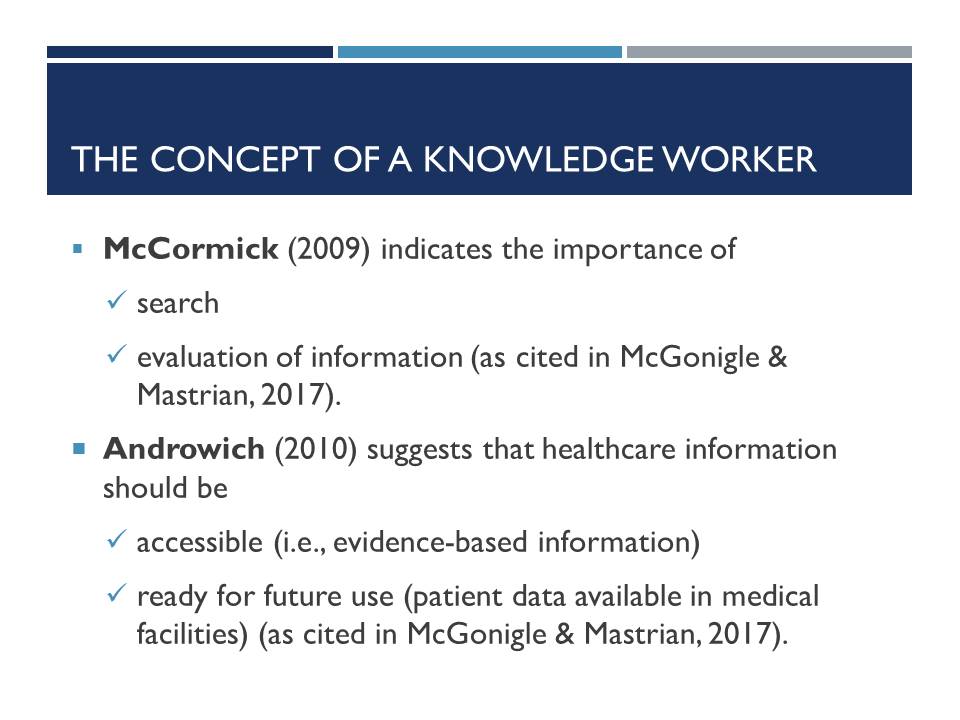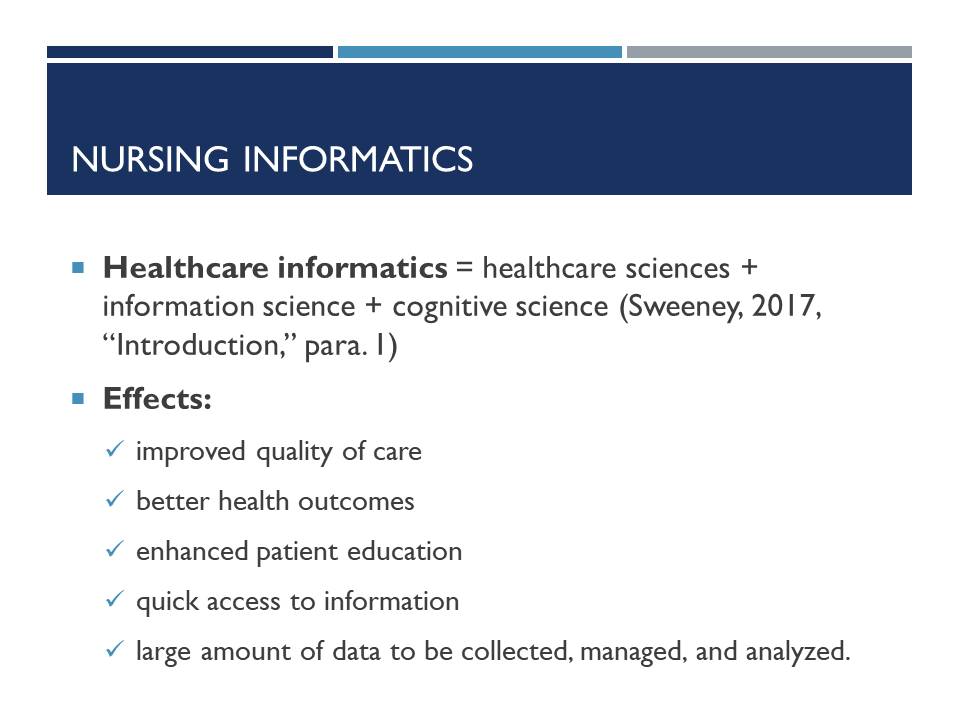Nurse Leader as a Knowledge Worker Presentation
McCormick (2009) expects a knowledge worker to spend about half of his or her time on search and evaluation of information (as cited in McGonigle & Mastrian, 2017). Androwich (2010) suggests that healthcare information should be accessible and ready for future use (as cited in McGonigle & Mastrian, 2017). Nurses need evidence-based information and patient data available in medical facilities to be able to inform present patients. Additionally, patient data should be entered in a way that it could be easily accessed in the future. Therefore, knowledge workers, as the source of organizational success and growth, should have specialized advanced education, a high degree of autonomy in their workplace, and the ability to work in a multidisciplinary environment.


Nursing informatics
- Healthcare informatics = healthcare sciences + information science + cognitive science (Sweeney, 2017, “Introduction,” para. 1)
- Effects:
- Improved quality of care;
- Better health outcomes;
- Enhanced patient education;
- Quick access to information;
- Large amount of data to be collected, managed, and analyzed.
Healthcare informatics may be defined as “the integration of healthcare sciences, computer science, information science, and cognitive science to assist in the management of healthcare information” (Sweeney, 2017, “Introduction,” para. 1). According to the American Nurses Association (ANA, 2001), nursing information is “a specialty that integrates nursing, information, and knowledge in nursing practice” (as cited in Sweeney, 2017, “Introduction,” para. 1). Because of multiple technological advances, healthcare and nursing informatics have been continuously growing within the medical field. The positive results of such progress are improved quality of care, better health outcomes, and enhanced patient education. On the other hand, while the implementation of technology ensures quick access to medical information, it also increases the amount of data to be collected, managed, and analyzed by healthcare providers.

The role of a nurse leader as a knowledge worker
- 22 million households using virtual care solutions in 2018.
- Advanced education options = a source of informatics knowledge and skills.
- Executive level positions available:
- Chief Nursing Informatics Officer.
- Chief Medical Informatics Officer (Nagle et al., 2017).
- The roles of a nurse leader as a nursing informatics specialist:
- Acquisition, implementation, and evaluation of clinical information (Nagle et al., 2017, p. 213).
- Executive oversight, systems education and training.
- Project management and analytics.
- Development of new solutions for businesses.
Nurse Leader = core to information management and support in medicine, technology, retail, and consulting.
1 hour!
The minimum time our certified writers need to deliver a 100% original paper
By 2018, 22 million households are expected to make use of virtual care solutions (Nagle. et al., 2017). The role of nursing informatics specialists continues to evolve rapidly in response to new technologies and an increased significance of data analytics. Therefore, the role of a nurse leader as a knowledge worker requires a wide range of practical skills and in-depth knowledge of nursing informatics. Today, the options for advanced education help nurse leaders to achieve credibility and gain informatics knowledge and skills, as well as a way to take executive-level positions such as the “Chief Nursing Informatics Officer” and “Chief Medical Informatics Officer” (Nagle et al., 2017).
Nurse leaders specializing in nursing informatics might be found in most healthcare organizations performing a multitude of roles largely
Order this paper